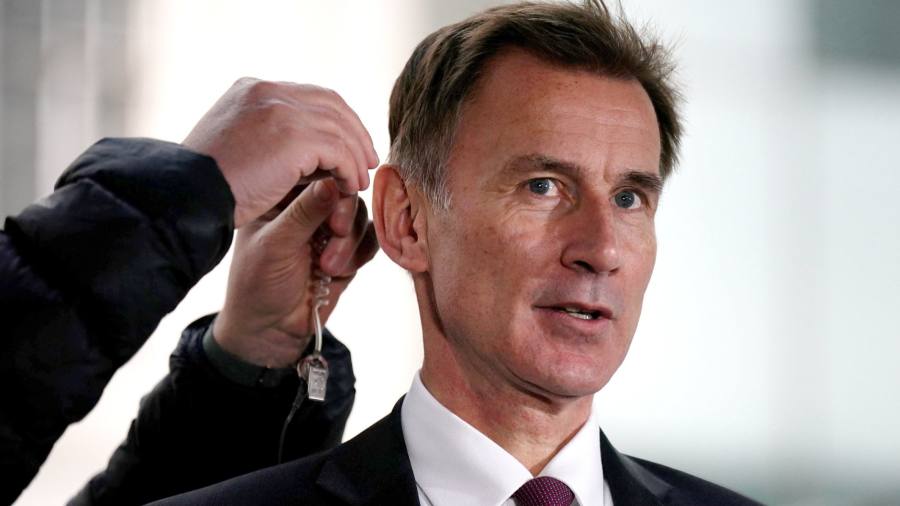
Chancellor Jeremy Hunt has acknowledged that Brexit has thrown up trade barriers between Britain and its biggest trading partner, but claimed it will be possible to remove “the vast majority” of them over time.
The Office for Budget Responsibility, the independent fiscal watchdog, on Thursday said the latest evidence showed that Brexit had had “a significant adverse effect on UK trade”, cutting trade volumes and relationships between British and EU companies.
Meanwhile Paul Johnson, director of the Institute for Fiscal Studies think-tank, on Friday said: “Very clearly Brexit was an economic own goal. Economically speaking that has been very bad news indeed.”
The economic impact of Brexit has become a subject of increasing debate in business and among members of the public, but it remains a taboo for the main UK political parties.
A YouGov poll this week found public support for Brexit had fallen to a record low of 32 per cent, compared with 56 per cent who thought it was wrong.
Prime minister Rishi Sunak, who backed Leave in the 2016 referendum, has played down the role of Brexit in Britain’s poor economic performance. He said this week at the G20 summit in Bali that all countries had their “idiosyncrasies”.
Shadow chancellor Rachel Reeves said a Labour government would not rejoin the EU’s single market or customs union, let alone the wider bloc, although it would try to soften the impact of Brexit.
For both parties, the idea of reopening the toxic Brexit debate is seen as a certain vote-loser. Even the pro-European Liberal Democrats accept there is no immediate prospect of a reversal.
Hunt told the BBC on Friday that he had “great confidence that over the years ahead we will find outside the single market we are able to remove the vast majority of the trade barriers that exist between us and the EU. It will take time.”
But Britain is always likely to face bureaucracy in trading with the bloc from outside the single market, especially given its unwillingness to accept EU rules or the jurisdiction of the European Court of Justice.
Hunt said Britain would not rejoin the single market, even though the OBR has forecast that a “Brexit effect” will lead medium-term GDP to be 4 per cent lower than it would otherwise have been.
“I don’t think it’s the right way to boost growth because it would be against what people were voting for when they supported Brexit,” Hunt added.
Business leaders have largely avoided entering the political arena over Brexit but are now speaking more freely, as the costs to the economy become clearer.
Speaking at the annual dinner of the Chemical Industries Association on Thursday, chair Tom Crotty questioned why the UK seemed to be “looking down our noses” at our biggest trade partners.
The industry is negotiating with the government over the implementation of UK REACH, a post-Brexit copycat version of the EU’s REACH chemicals safety database, which businesses have called duplicative and expensive.
Stephen Elliott, chief executive of the trade body, said the cost of the UK scheme was now expected to exceed £3bn and called on the government to urgently address the issue.
He also warned Sunak against rushing through a bill to “review and revoke” all EU-derived law by the end of 2023, much of which underpins industry safety legislation. “We are not in the market for any regulatory bonfire,” he said.